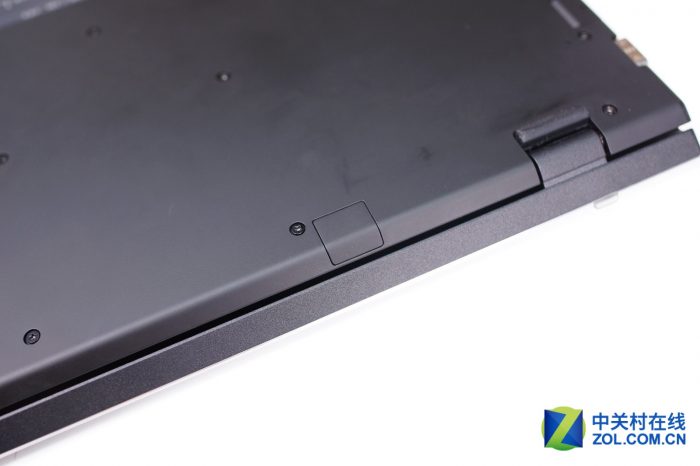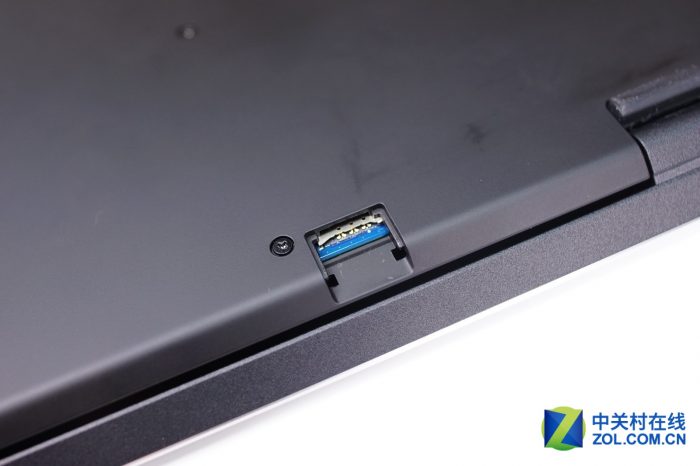The VAIO laptop brand officially returned to the Chinese market with the VAIO VJS131 and VAIO VJS112 launched in Tokyo on January 24, 2018. These two thin and light laptops are powered by an Intel 8th-generation Core processor and feature an optimized cooling system. In addition, the laptops feature unique VAIO TruePerformance technology, which helps increase the TDP of the Intel 8th Gen Core processors from 15W to 20W, thereby greatly improving processor performance.
VAIO TruePerformance is a unique innovation in the lightweight laptop market. Today, we will start tearing down the VAIO VJS131 to explore its internal design.

There is a SIM card slot at the bottom.

After removing the dust cover, you will see the SIM card slot. The Chinese version of the laptop may not have obtained the relevant license, so it does not support 4G functionality.

The screws on the bottom cover are exposed to the air. This design is rare to see in current laptops.

Remove all screws on the back cover, insert a plastic pick between the palm rest and the bottom cover. There are some clips on the palm rest that secure the palm rest to the bottom cover. Slide the pick to unlock all the clips until the palm rest is completely separated from the bottom cover. Please note that the keyboard ribbon cable is still connected to the motherboard, and you need to disconnect it to remove the palm rest completely.

Before continuing with the disassembly, we need to turn off the switch near the wireless network card to prevent any unexpected accidents during the process.

On the back of the palm rest, you can access the keyboard, touchpad, and fingerprint module.

The fingerprint scanner module can be seen on the back of the circuit board.

We need to remove the circuit board from the touchpad section.

After removing the palm rest, we can access the battery, SSD, cooling system, wireless card, USB board, speakers, and motherboard.

This laptop comes with a 35Wh battery. Compared to other thin and light laptops, its battery is smaller in size. The battery is manufactured by a Chinese company.

This laptop comes with a cable manager for the Wi-Fi and LCD cables, which keeps the internal cables organized.

Disconnect all the ribbon cables and remove the hinge to remove the screen.

Placing the laptop antenna on the top of the screen brings the best effect. This is the result that VAIO gets from the professional testing environment and test instrument. That is why the antennas on VAIO laptops are basically placed there.

After removing the battery, we found a yellow ribbon cable that connects the USB board to the motherboard.

The laptop comes with a Samsung SM961 SSD.

The Wi-Fi and Bluetooth 2-in-1 network card is from Qualcomm, and its model number is NAF344A.

The USB board has two USB 3.0 ports and a 3.5mm headphone jack. The sound chip is also integrated into the USB board.

Remove the screws securing the heat sink and take it off.

Although the cooling module of the VJS131 consists of only a single copper pipe, its diameter is relatively large. Compared to the copper pipes used in traditional thin and light laptops, the VAIO VJS131’s copper pipe is more robust. However, it would be even better if the length of the copper pipe were shortened.

The heat dissipation hole walls are relatively thick, which helps improve heat dissipation efficiency.

Remove the screws securing the motherboard and disconnect all the ribbon cables from it. Lift the motherboard from one side by hand and wiggle it until it separates from the bottom cover.

We can see the special mark on the motherboard, which is covered by the heat dissipation copper pipe. No electronic components are installed here. This design effectively ensures the stability of the motherboard’s operation.

The back cover is made of nylon and fiberglass, which enhances its stability and provides superior heat resistance and higher impact strength. In addition, flame retardants are added to the back cover, making it less likely to burn under high-temperature conditions.
Summary
After disassembling the VAIO VJS131, we found that its internal design was nothing special. However, the laptop is made of high-quality materials and features well-crafted components. In fact, VAIO TruePerformance technology fully unleashes the performance of the Intel 8th-generation Core i5 processor, allowing it to outperform Core i7 processors. However, the internal structural space utilization of this laptop is relatively poor.